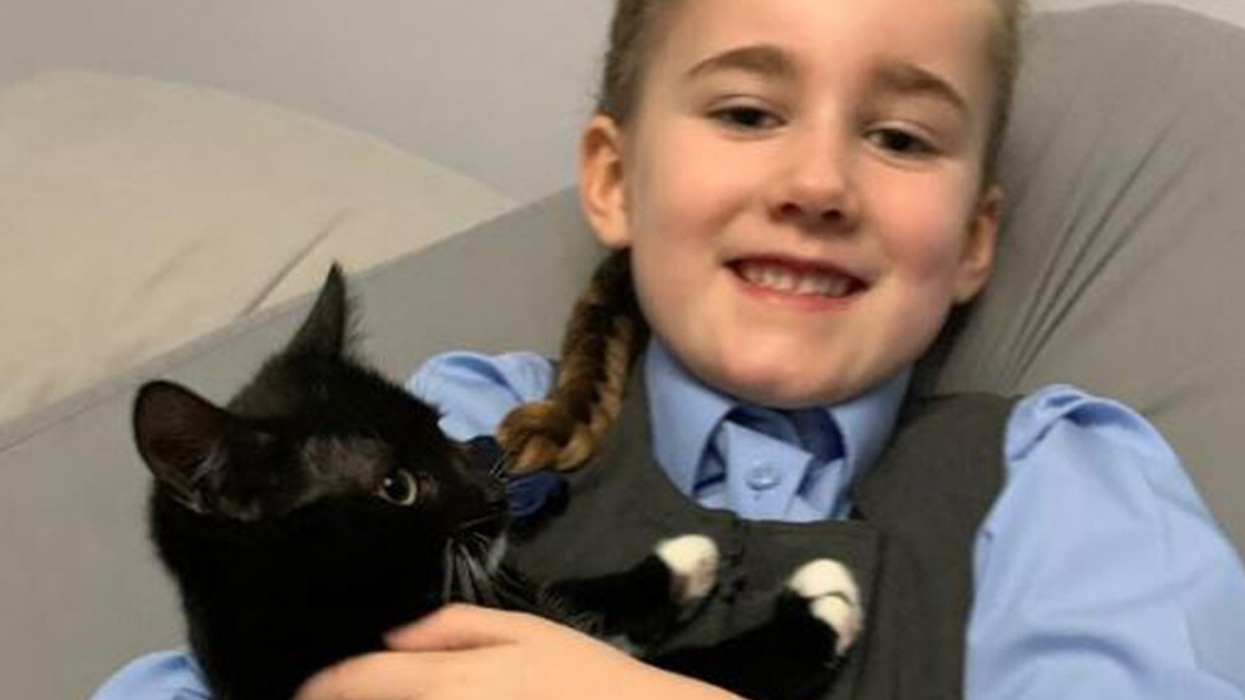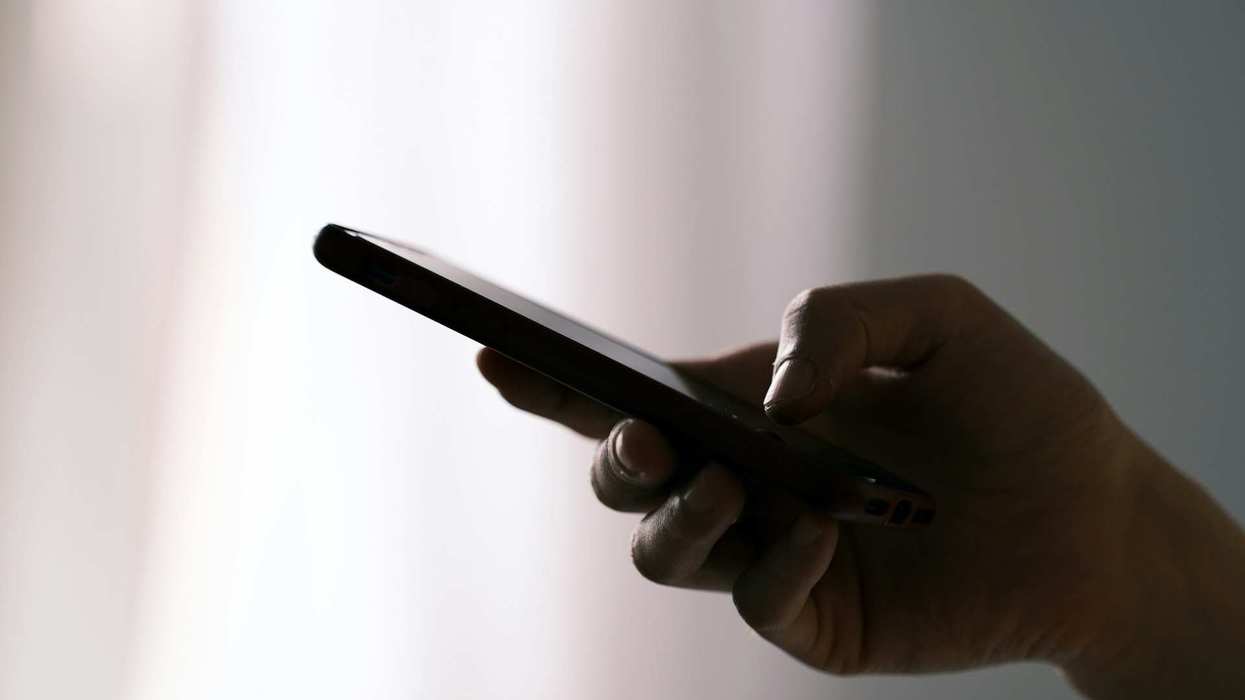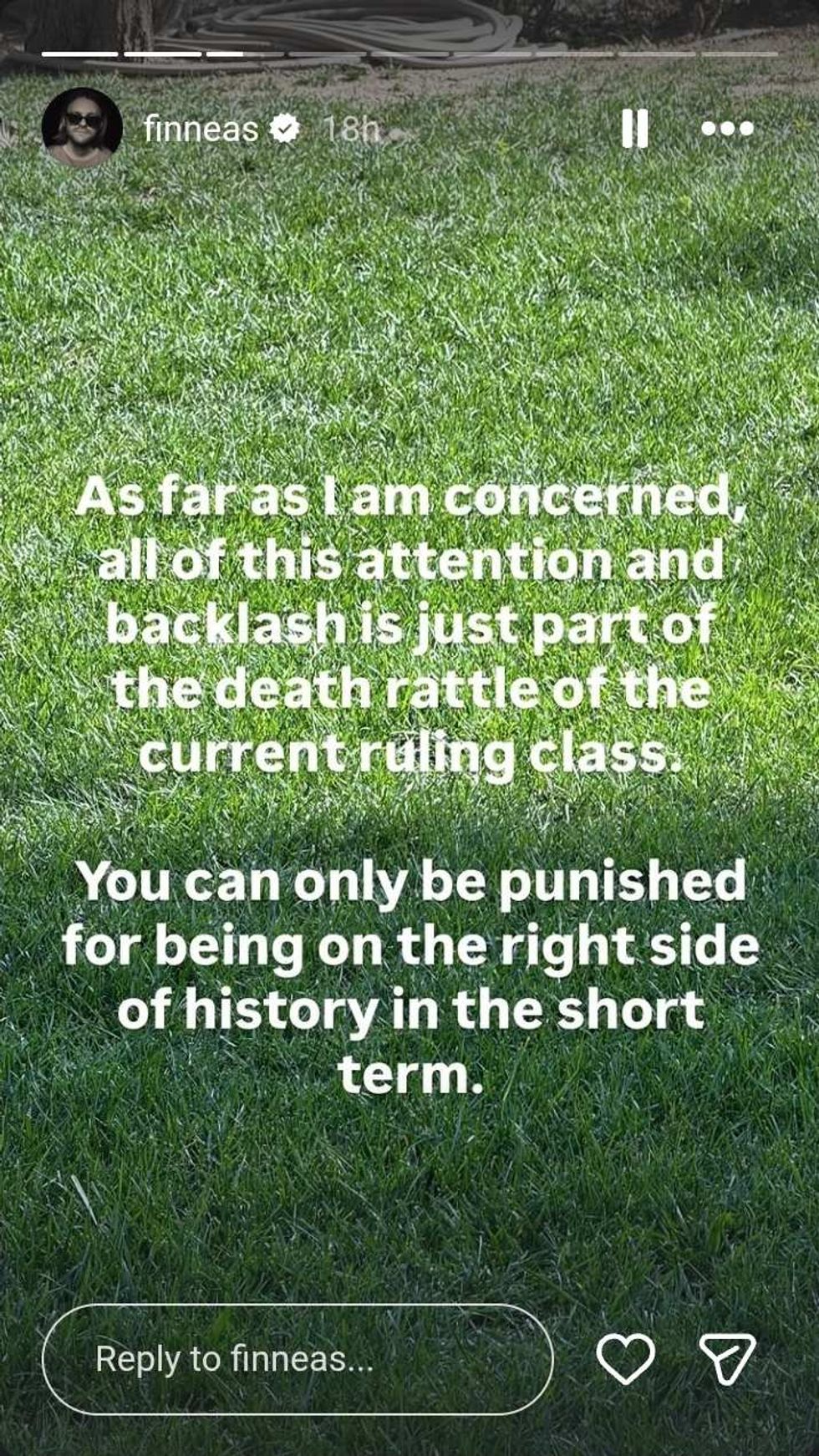This six-year-old was blighted by night terrors after a horrifying car crash. Now, her mom praises a rescue kitten for easing her post-traumatic stress disorder.
In February last year, Jen Ritchie got a call that every parent dreads, telling her that her girl Molly had been involved in a serious collision.
Incredibly, she escaped the wreckage with just a few bruises but affected nonetheless. Within months, she began to suffer with night terrors.
Doctors confirmed that Molly was experiencing post-traumatic stress disorder (PTSD) – an anxiety condition triggered by a distressing event – and referred her to child and adolescent mental health services (CAMHS). They recommended a pet may be therapeutic while she waited for more specialist help.
Heeding their advice, Jen adopted two rescue kittens, Teddy and Evie in August, and within weeks, Molly's symptoms eased.

“Molly was chuffed to have two little kittens running around the house, but it was clear from the start that her and Teddy were going to have a special relationship," Jen said.
“From the moment he arrived, he was fawning over Molly. He was immediately drawn to her and, by the end of the summer holidays, I couldn't believe the impact he'd had on her."
She had a tough time recounting the events of the accident.
“Molly's dad had been driving along, and a car was racing through the crossroads and didn't stop," she explained. “It slammed into their car, hitting them with so much force they went over the barriers in the middle of the road, flying over to the other side."
“I got there and the whole crossing was cordoned off – it was like something off the telly."
“There were police everywhere. It was overwhelming enough for me. I can't imagine what it must have been like for Molly," she continued.
From there, Molly was taken to Liverpool's Alder Hey Children's Hospital, where she appeared fine, running along the corridors as she waited to be assessed.
With doctors ruling out concussion, she was able to return home that same day, with little more than some faint bruising on her right cheek.

“Everybody just kept telling us how lucky we were," Jen added. “The police, the nurses and doctors – they couldn't believe it."
Back home, Jen did not notice any immediate changes in her daughter's behavior. Other than Molly being “a bit more needy" than usual.
“Molly definitely wanted a lot more cuddles, and would want to know where she was going and who was going to pick her up in more detail, but that was it," she said.
But, when Molly broke up from school for the summer five months later, she became a different person virtually overnight.
“It went from zero to 100 – just like that. Suddenly, Molly wouldn't leave a room without me, and if I tried to leave her on her own, she'd have full on tantrums," Jen continued.
“She was having terrible nightmares where she would call out in her sleep about car crashes and how she was 'lucky to be alive.'"
“It was like she was regurgitating information from the day of the crash, but in her sleep," she continued.
Before long, Molly became so anxious that she refused to even go to the bathroom on her own.
“I confided in a couple of friends I go dancing with, who are nurses, and when I told them the symptoms they mentioned delayed PTSD," Jen continued.

“I did some more research online and knew that Molly must be suffering with some form of it," Jen added.
At the end of July, Jen took Molly to the GP, who confirmed she was displaying signs of PTSD.
According to the NHS, serious road accidents are a known cause of the condition, symptoms of which include nightmares, flashbacks, insomnia and feelings of isolation, irritability or guilt.
The doctor suggested that Jen also look into adopting a pet, citing the possible therapeutic effects animals can have. And, putting Molly on a waiting list to see a CAMHS specialist.
So, she began researching local animal re-homing centers, and came across Cats Protection.
“I'd always 'ummed' and 'ahhed' about the idea of getting the kids a cat, so when the doctor suggested it to help Molly, we didn't need much persuading all," she said.
“Molly was over the moon with the idea. She helped us go through every step of the process," she continued.
After three weeks, the family were matched with two kittens – Evie, who was taken from a home that could no longer care for her, and Teddy, the only surviving cat from his stray mother's litter.
And when the adorable pair of British Shorthairs arrived at Jen's home at the end of August it was clear that Molly and Teddy had a special bond.

“Molly has a bunk bed, with the top bed reserved for all her stuffed toys, and straight away Teddy decided he wanted to sleep in there – we didn't encourage it, it was all his own doing – but she was thrilled," Jen said.
Within just two weeks, the girl's sleep pattern was back to how it had been before the accident.
“Within two weeks, she was hardly every getting up in the night – and she still doesn't over six months later," Jen said.
“I'm without doubt that it's down to Teddy being in there with her. I was so grateful to have her back in a healthy sleeping routine by September, when she went back to school."
By Christmas, Molly had broken away from her “unhealthy attachment" to her mom, too.
“I don't want to say she's swapped her attachment from me to Teddy because she's got her independence back and I don't want to downplay that," Jen continued.
“But ever since she's been able to carry Teddy round like a baby, she's been a lot calmer. The two of them are inseparable. When Molly gets up in the morning, they do their reading together and the moment she's home from school, on the iPad or doing homework, he'll sit with her."

“The pair of them are like best friends. They'll even go exploring in the garden together without me or Mike looking in – something she never would have done before," she continued.
“It was such a blessing seeing her back to normal."
With Molly still suffering the occasional night terror, Jen knows that Teddy has “by no means been a fix all" solution – but has no doubt that the sweet-natured moggy was a lifeline while she waited for the CAHMS assessment.
During the appointment, Molly officially diagnosed with PTSD and separation anxiety. The upset a child experiences when separated from their primary caregiver, according to CAHMS.
“We started to have monthly group therapy sessions with other children to talk through Molly's problems in more depth, and hopefully rationalize them, but with everything that is happening with coronavirus, those sessions have been put on hold," said Jen.
“We're so lucky to have the NHS, but I can't help but think how much worse things could have got if it wasn't for Teddy."

“He's especially proven his importance during the past few weeks. I was dreading what the disruption would do to Molly's mental health but, to my amazement, she's actually enjoying being able to see more of Teddy," she said.
To find out more about Cats Protection, visit www.cats.org.uk







 @breezyjohnsonski/Threads
@breezyjohnsonski/Threads @m.carr.photo/Threads
@m.carr.photo/Threads @saycheese4susan/Threads
@saycheese4susan/Threads @petela2/Threads
@petela2/Threads @tip.ray/Threads
@tip.ray/Threads





 @JaredHudson_AL/X
@JaredHudson_AL/X @finneas/Instagram
@finneas/Instagram reply to @Finneas/Threads
reply to @Finneas/Threads reply to @Finneas/Threads
reply to @Finneas/Threads reply to @Finneas/Threads
reply to @Finneas/Threads reply to @Finneas/Threads
reply to @Finneas/Threads reply to @Finneas/Threads
reply to @Finneas/Threads reply to @Finneas/Threads
reply to @Finneas/Threads reply to @Finneas/Threads
reply to @Finneas/Threads reply to @Finneas/Threads
reply to @Finneas/Threads reply to @Finneas/Threads
reply to @Finneas/Threads reply to @Finneas/Threads
reply to @Finneas/Threads reply to @Finneas/Threads
reply to @Finneas/Threads reply to @Finneas/Threads
reply to @Finneas/Threads reply to @Finneas/Threads
reply to @Finneas/Threads reply to @Finneas/Threads
reply to @Finneas/Threads reply to @Finneas/Threads
reply to @Finneas/Threads reply to @Finneas/Threads
reply to @Finneas/Threads @markruffalo/Threads
@markruffalo/Threads


 Awkward Pena GIF by Luis Ricardo
Awkward Pena GIF by Luis Ricardo  Community Facebook GIF by Social Media Tools
Community Facebook GIF by Social Media Tools  Angry Good News GIF
Angry Good News GIF 
 Angry Cry Baby GIF by Maryanne Chisholm - MCArtist
Angry Cry Baby GIF by Maryanne Chisholm - MCArtist